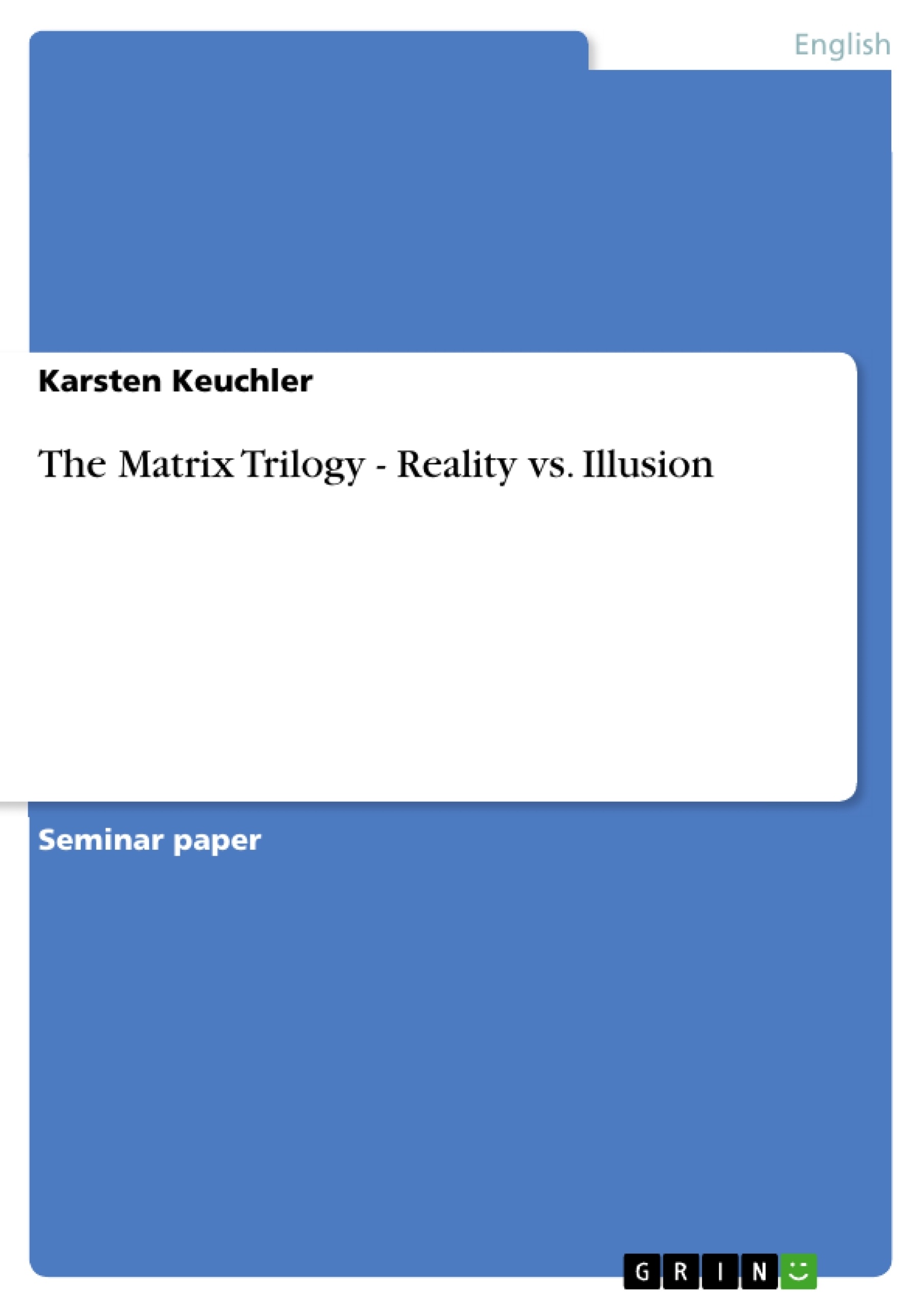According to the Simulation Hypothesis, what we perceive as reality is actually just a simulation. However, this artificial reality cannot be distinguished from the actual reality so that all those caught in the simulation are not aware of it. Eventually, the Wachowski brothers picked up this idea in order to produce the Matrix trilogy, a cyberpunk story which may have led to more controversial discussions than any other movie in recent cinema history.
The story is set in the near future and starts out with Neo, a computer hacker, being contacted by some underground rebels. Their leader Morpheus considers him to be some promised Christ-like savior, the “chosen one” to free the human race and reestablish peace between the machines and mankind. He introduces Neo to what he knows about reality. [...]
But Neo did have a choice whether he really wanted to know the truth about the world he was living in. Morpheus offered him two options, namely a blue and a red pill: “You take the blue pill and the story ends. You wake up in your bed and believe whatever you want to believe,” he explained to Neo. In allusion to Alice in Wonderland, he would otherwise “show [him] how deep the rabbit hole goes.” Although Morpheus insists he cannot offer “anything but the truth,” Neo’s decision in favour of the red pill is clear rather soon. This scene right at the beginning of the trilogy is also when everybody in front of the screens starts to wonder what he or she would have opted for. Even in the further course of the movie, when it is known that people just are slaves to the machines and living in a simulation, this question remains, to some extent. What advantages does it have to stick to the system and, on the other hand, what is wrong with living in such a simulated reality as presented in the Matrix trilogy? It is the decision between reality and illusion. But what is real and what is unreal?
Inhaltsverzeichnis (Table of Contents)
- I. Introduction
- II. General Thoughts on the Medium Film
- III. A Postmodern Perspective
- IV. A Metaphysical Perspective
- V. A Moral Perspective
- VI. Conclusion
- VII. Literature Consulted
Zielsetzung und Themenschwerpunkte (Objectives and Key Themes)
The Matrix trilogy, a cyberpunk story set in the near future, explores the philosophical implications of the Simulation Hypothesis, which suggests that our perceived reality is merely a simulation. The film's primary objective is to challenge our understanding of reality and illusion, prompting viewers to consider the choices we make and the consequences of those choices.
- The nature of reality and the distinction between reality and illusion
- The ethical implications of living in a simulated world
- The role of free will and choice in a predetermined reality
- The relationship between the individual and the collective
- The power of technology and its potential to shape our perceptions
Zusammenfassung der Kapitel (Chapter Summaries)
- I. Introduction: The chapter introduces the central theme of the film, the Simulation Hypothesis, and its implications for the characters and the audience. It also outlines the key conflict between humans and machines and the role of Neo as a chosen savior. The chapter ends with the iconic choice between the red pill and the blue pill, symbolizing the decision to confront reality or remain in blissful ignorance.
- II. General Thoughts on the Medium Film: This chapter examines the film's exploration of reality and illusion through the lens of film itself. It discusses the reactions of students to the film, highlighting their interpretations of the themes of reality vs. illusion and the blurred lines between the movie world and the audience's reality. The chapter emphasizes the cinematic experience as a tool for engaging with the film's themes.
- III. A Postmodern Perspective: This chapter analyzes the Matrix trilogy through a postmodern lens, examining its critique of established truths and its embrace of ambiguity and subjectivity. It highlights the film's exploration of the fragmented nature of reality and the challenges of finding meaning and truth in a complex and ever-changing world.
Schlüsselwörter (Keywords)
The Matrix trilogy delves into the concepts of reality and illusion, the Simulation Hypothesis, cyberpunk, artificial intelligence, free will, determinism, and the struggle for individual liberation within a seemingly oppressive system. These themes are explored through the characters' choices, their interactions with the Matrix, and the ongoing conflict between humans and machines.
Frequently Asked Questions
What is the Simulation Hypothesis in The Matrix?
It is the idea that what humans perceive as reality is actually a computer-generated simulation designed by machines to keep humanity enslaved.
What do the red and blue pills symbolize?
The blue pill represents remaining in a state of blissful ignorance within the simulation, while the red pill represents the painful but necessary confrontation with the truth of reality.
Why is Neo considered the "Chosen One"?
In the story, Neo is a savior figure prophesied to have the power to manipulate the Matrix and lead humanity to freedom from the machines.
How does the film relate to postmodernism?
The trilogy explores postmodern themes like the fragmentation of reality, the blurring of lines between simulation and original, and the search for subjective meaning.
What moral questions does the Matrix trilogy raise?
It questions whether an artificial, happy life is worth more than a harsh, authentic reality and explores the limits of free will versus determinism.
- Quote paper
- Karsten Keuchler (Author), 2007, The Matrix Trilogy - Reality vs. Illusion, Munich, GRIN Verlag, https://www.grin.com/document/160999



